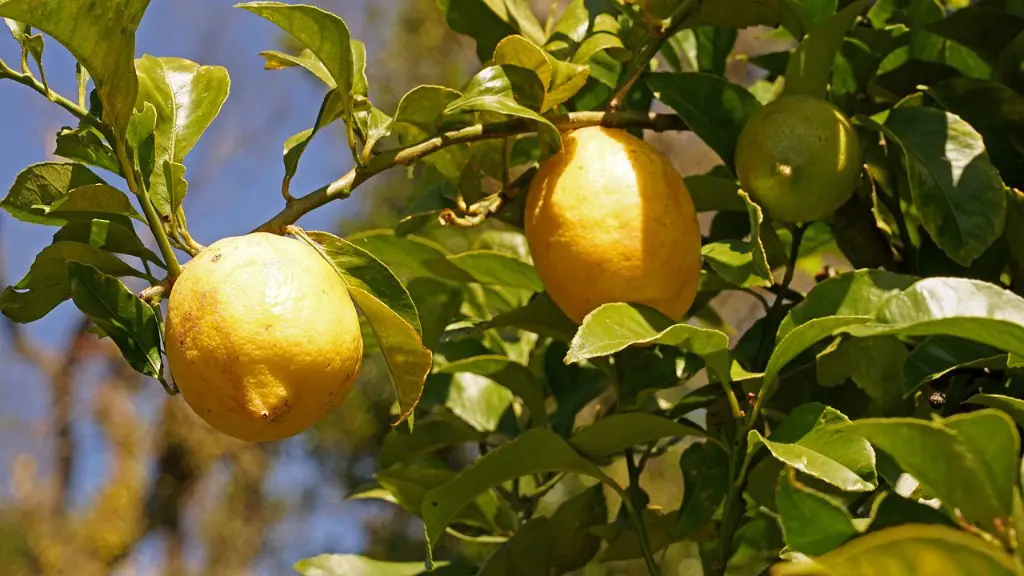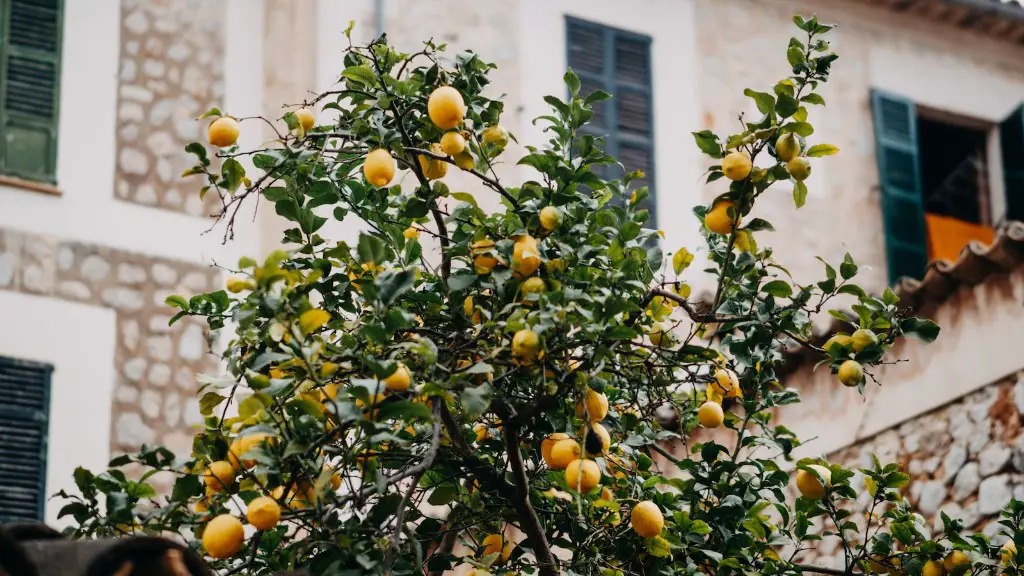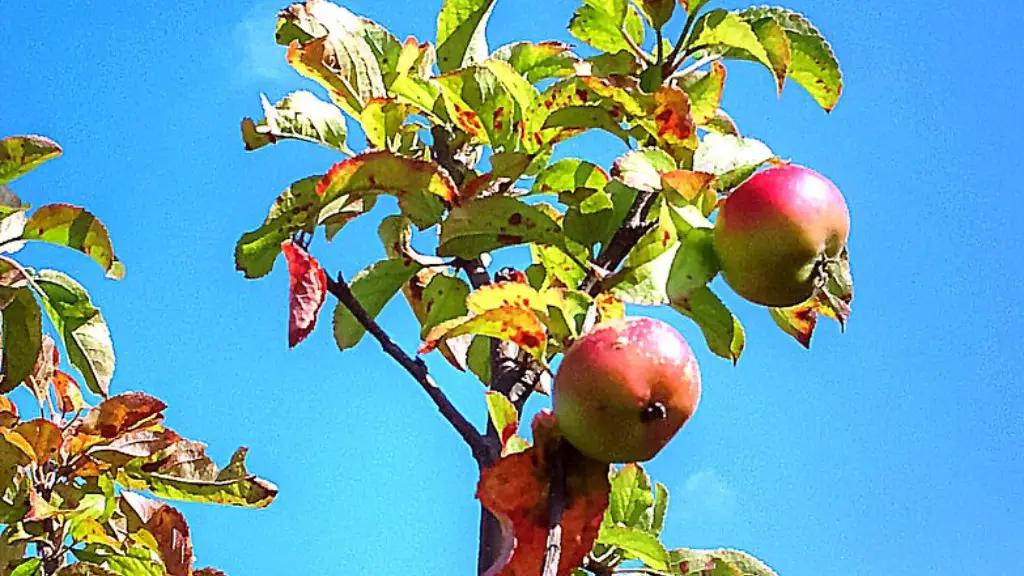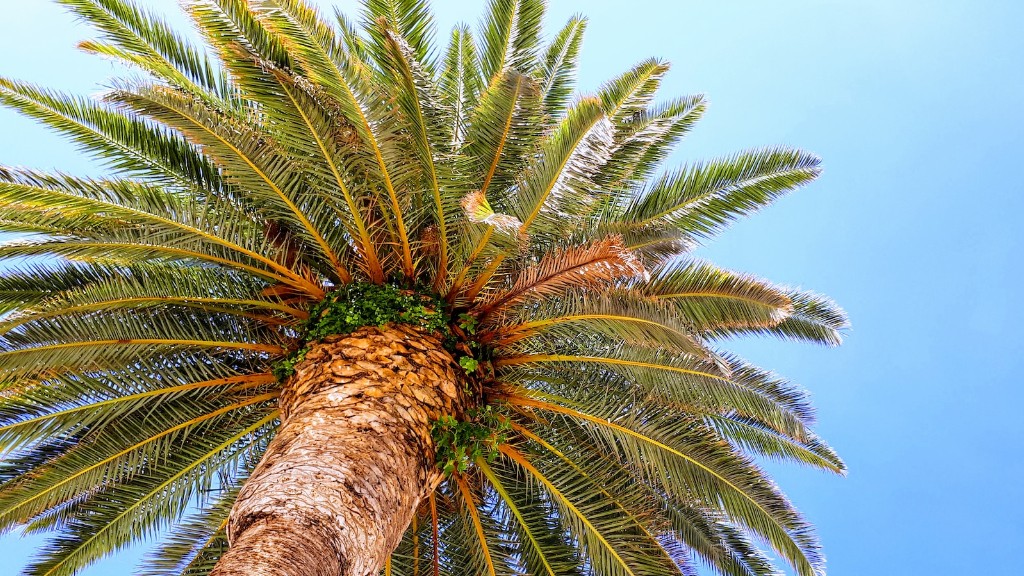It’s every gardener’s dismay when their lemon tree seems not to be growing. While the nursery or garden centre may have promised plenty of zesty fruits, if the tree is not thriving, it can be frustrating. There could be many different reasons why your lemon tree isn’t growing, so it is important to troubleshoot the issue and figure out what is stopping it from thriving.
A common culprit behind a slow-growing lemon tree is a lack of proper care. Lemon trees require frequent watering and access to plenty of sunlight. If the tree isn’t getting the proper care it needs, it won’t be able to grow and produce much, if any, fruit. To keep your tree healthy and growing, water regularly and make sure it is getting full sun each day, if possible.
Another potential problem is inadequate soil nutrition. Lemon trees require several nutrients in order to grow, including nitrogen, phosphorus, and potassium. If the soil has a lack of any one of these, it could stunt the growth of your lemon tree. Have the soil tested and use the test results to add any missing nutrients.
In some cases, an infestation of pests can affect the health of your tree and cause stunted growth. Inspect the tree for any signs of pest infestations, such as aphids, leaf miners, and scale. If these pests are present on the tree, take steps to remove them so the tree can start to flourish.
Finally, incorrect pruning can also affect the growth of a lemon tree. If the pruning was too aggressive or done at the wrong time, it can prevent the tree from growing correctly. Remove any dead or diseased branches and trim the rest at the right times. Also, remove any suckers that may appear on the trunk of the tree, as these can reduce the tree’s ability to produce adequate fruits.
Lack of Pollination
Another potential issue you may have with a lemon tree not growing is a lack of pollination. This is especially true if your tree is just beginning to flower. While lemon trees are self-pollinating, meaning they can pollinate themselves without the help of bees or other pollinators, an influx of pollinators can help.
If you don’t have a lot of bees or other pollinators in your area it’s worth considering hand-pollinating your tree. This involves taking a soft brush and gently transferring the pollen from the stamen of one flower to the pistils of another. You can also use a cotton swab or a piece of muslin cloth to do this.
Alternatively, if you don’t want to do it yourself, you can introduce beehives to your garden. This can help to increase the number of pollinators and, in turn, increase the chances of your lemon tree producing fruit.
Improper Planting
It’s also important to ensure the tree was planted correctly. If it was planted too deep or in a very shallow hole, the tree may not be able to grow correctly. A deep hole can stop the roots from being able to reach the surface, while a shallow hole can cause the tree to become water-logged, which can restrict its growth.
When planting the lemon tree, make sure you dig a hole that is twice the size of the root ball. This should be deep enough to allow the roots to spread out and reach the surrounding soil. Ensure the soil is evenly distributed in the hole and fill in any extra space with soil.
Finally, lemon trees prefer loamy, well-draining, nutrient-rich soil. If your soil doesn’t have the right texture and nutrients, it can prevent the tree from growing and thriving. Consider amending the soil with compost or mulch, which can provide the tree with the nutrients it needs to grow, or replant the tree in a new location.
Too Much or Too Little Water
It critical to make sure your tree is getting the correct amount of water. Too much water can lead to root rot, while too little can lead to wilting leaves and slow growth. Make sure to water your lemon tree regularly, but also monitor the soil and make sure it isn’t getting waterlogged.
If you are in an area with heavy rainfall, consider adding a layer of mulch over the surface of the soil to help retain moisture, while also reducing how often the tree needs to be watered. If you are in a drier climate, consider adding a drip irrigation system that can be used to water the tree on a more controlled schedule.
Temperature Considerations
Finally, temperature can also play a role in the growth of a lemon tree. If the temperature is too low, the tree won’t be able to grow and could even die. Lemon trees prefer temperatures between 50 and 75 degrees Fahrenheit, so if you live in a colder climate consider using a cold frame or a plant blanket to help keep the temperature consistent.
In warmer climates, the biggest risk is the sun’s heat. This can cause the leaves to burn and the fruit to suffer. To mitigate this, use shade fabric to shield the tree from the afternoon sun, or consider planting it in a spot that is a bit more shaded.
Insecticides and Fertilizers
Insecticides and fertilizers can also be used to help nourish the tree and protect it from pests. Be sure to use organic, safe-for-use products and follow the instructions carefully. Overuse of either can damage the tree and cause more harm than good.
Insecticides can be used to combat pests and provide the tree with some protection. Be sure to apply them regularly and follow the recommendations on the label. Fertilizers, on the other hand, can provide different nutrients to the soil, boosting growth and boosting fruit production.
But even with the use of insecticides and fertilizers, it is important to monitor the tree’s growth and health. Make sure the tree shows signs of improvement each season and that it is getting the correct care and nutrients it needs to thrive.
Good Gardening Practices
Good gardening practices can make all the difference when it comes to growing a healthy lemon tree. To maintain a thriving tree, make sure to prune correctly, water and fertilize regularly, and provide adequate amounts of sunlight.
Also, make sure to remember to inspect the tree regularly for signs of pests and disease. If you spot anything, take steps to remove it right away, as it can quickly spread and cause more damage if not addressed early on.
Finally, if possible, consider introducing some pollinators to help with production. Bees and other pollinators can have a positive effect on the overall health of your lemon tree as well as its growth.





